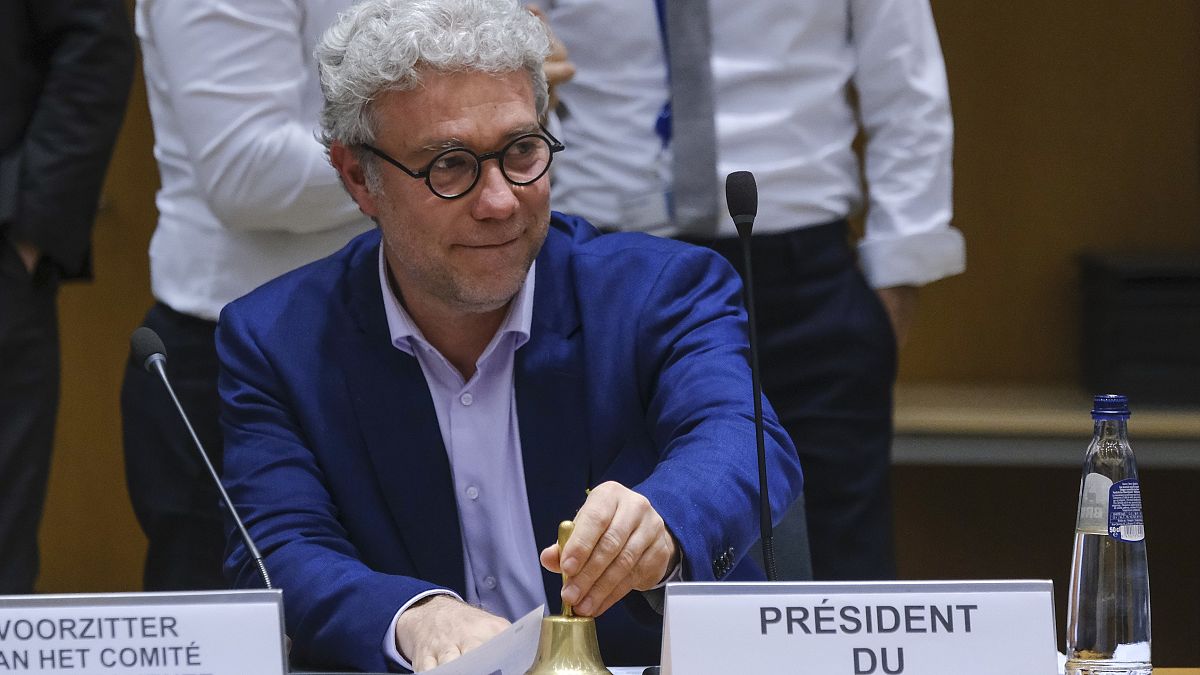Environment ministers are to hold a public debate on the stalled Nature Restoration Law, in what EU environment commissioner Virginijus Sinkevičius warns in an exclusive interview could be the last chance to unblock the central EU Green Deal file before a key UN biodiversity summit in the autumn.
Belgium has scheduled what is set to be a heated public debate on a blocked Nature Restoration Law at a summit of environment ministers on Monday (17 June) after failing to break a deadlock during back-room diplomatic talks this week.
The European Parliament has already adopted the legislation, which would require environmental restoration work to begin on a fifth of land and sea by 2030 and sets long-term targets for returning specific ecosystems to health, following an informal agreement last November with the EU Council of Ministers.
However, what was supposed to be a final rubber stamp from the legislative body that represents national governments in Brussels has been blocked by a handful of countries who have reneged on the so-called ‘trilogue’ agreement.
As current holder of the rotating EU Council presidency, Belgium – in the awkward position of itself having to abstain due to opposition from the Dutch-speaking Flemish region – had hoped to win a change of heart from at least one of the countries that make up a narrow blocking minority.
Austria, Belgium, Finland, Italy, the Netherlands, Poland, Sweden and, after a controversial last-minute U-turn, Hungary, have all signalled they intend to either abstain or oppose the law if it is put to the vote – in practical terms, there is no difference. If any one of them were to join the yes camp, the law would pass.
A government source revealed on Friday (14 June) that Belgium’s efforts had come to nothing, and so the presidency had put another live debate on the agenda of Monday’s Environment Council summit in Luxembourg – to be followed, if there is any sign of a breakthrough, immediately by a vote that could be the last for many months, with Hungary taking over the six-month presidency in July.
The last such debate saw heated exchanges in March, with Irish environment minister Eamon Ryan warning that a rejection of the law would mean “the European system is not working” and amount to a declaration that the 27-member bloc does not take the environmental and climate crises seriously.
Environment commissioner Virginijus Sinkevičius said at the time that rejecting a law already agreed in a process used for hammering out the bulk of EU regulations and directives would raise “serious questions about the consistency and stability” of the legislative process in Brussels.
In an interview with Euronews on Friday as he prepares to leave his post and join the ranks of the Greens after being elected as an MEP for his native Lithuania, Sinkevičius warned that if the nature law is not adopted on Monday it could lead to a stalemate in Brussels ahead of the sixteenth conference of parties (COP16) to the UN Convention on Biological Diversity in October.
The last such summit, in December 2022 saw a groundbreaking agreement to reverse global biodiversity loss. “At the COP15, Europe was a leading force behind the agreement that was achieved,” Sinkevicius said. “And, of course, it wouldn’t be great if we were unable to deliver on our international commitment.”
Several countries issued statements this week, setting out their positions on the NRL ahead of the first major discussion of EU environment policy since EU elections that saw the Greens lose ground across much of the bloc.
Germany, although it has signalled it would back the law, said it was “crucial” that no “additional burdens” be placed on farmers when implementing the regulation – echoing a central concern of the countries blocking the law. Another supporter, Latvia, likewise expressed “serious concerns” over measures aimed at agricultural land, notably the re-wetting of drained peatland.
The Netherlands, home to the bulk of Europe’s drained peatland, reiterated its position that its opposition to the law was in line with a resolution backed by the “vast majority” of its parliament. Poland, which plans to abstain, was opposed to the law chiefly because of a “failure to guarantee adequate financial resources for nature restoration”.
Diplomatic sources from countries in favour of the law told Euronews they still saw a chance it would be adopted on Monday. “We don’t know what will happen over the weekend, and we could suddently have a qualified majority,” said one. Another said it was “absolutely possible that some countries against it may come to an agreement”.
Euronews’ exclusive interview with environment commissioner Sinkevičius will be published in full on Monday, 17 June.

